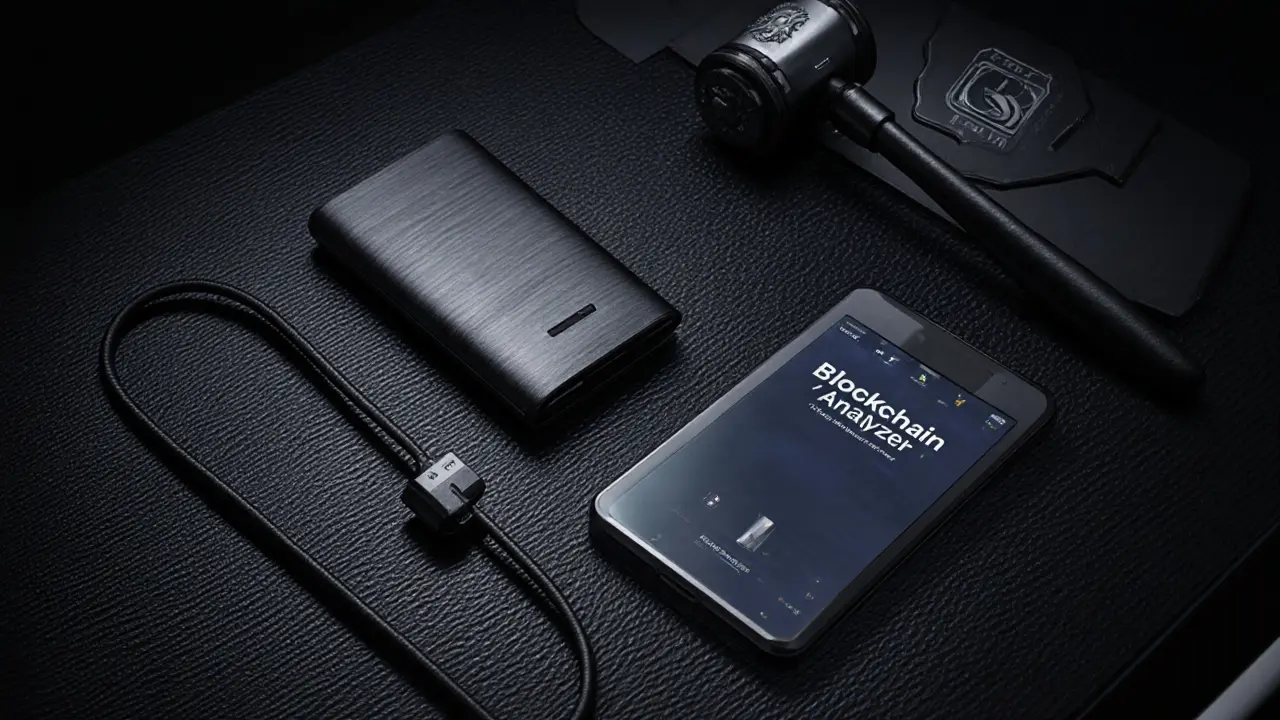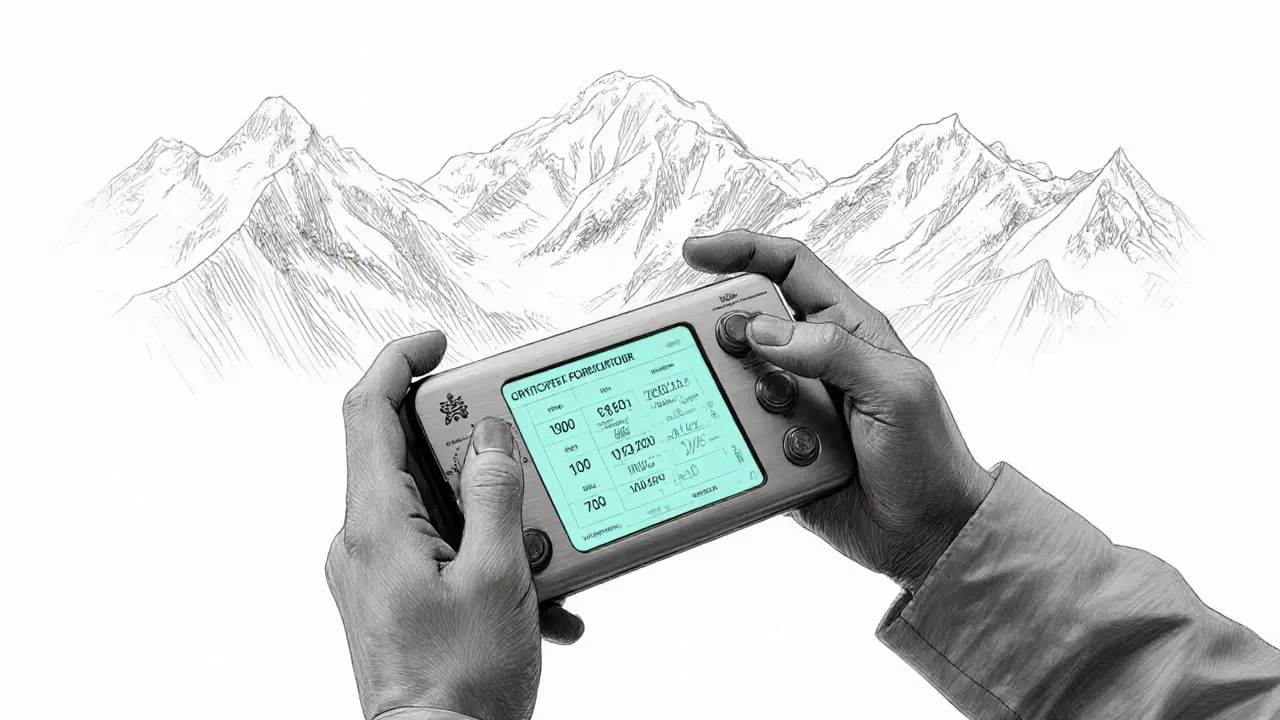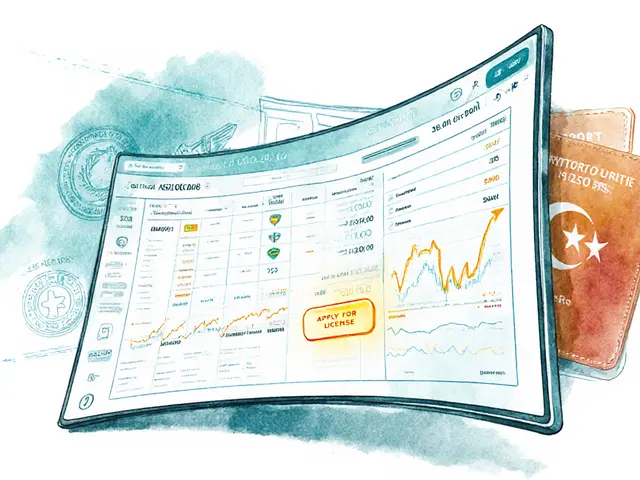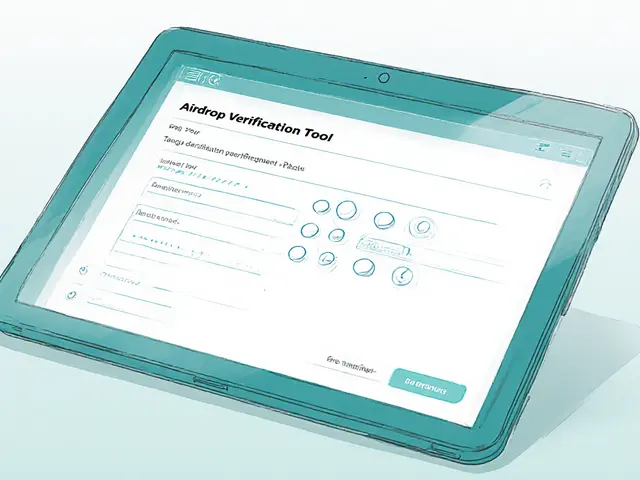Crypto Asset Forfeiture Calculator
Violation Type
Potential Outcomes
TL;DR
- All crypto activities are illegal in Nepal under the Muluki Criminal Code Act 2017.
- Violations are treated as criminal offenses and can trigger asset forfeiture.
- Forfeiture follows standard criminal asset seizure procedures - court order, seizure, valuation, and auction.
- Fines range from NPR 500,000 to NPR 5,000,000 plus up to ten years imprisonment.
- Only a handful of emerging markets maintain a total ban; Nepal is one of them.
Why Nepal’s Crypto Ban Matters
When you hear cryptocurrency is a digital token created using cryptography that can store value and you wonder if you can trade it from Kathmandu, the answer is a firm “no.” The Nepalese government has kept a hard line since 2017, and the crackdown intensified after the Nepal Rastra Bank the central bank that issues the Nepalese rupee and regulates financial institutions issued a public warning in 2021.
The Legal Backbone: Muluki Criminal Code Act 2017
The core of the ban lives in Muluki Criminal Code Act 2017 a comprehensive criminal statute that defines offenses and penalties in Nepal. Section262(A) explicitly labels any “information, code, token, or virtual asset created electronically through cryptography that has commercial significance or can store value” as cryptocurrency and declares its creation, possession, mining, trading, or storage a criminal act.
Violators are prosecuted under both this code and the country’s anti‑money‑laundering (AML) legislation, which treats crypto assets as proceeds of crime. The Nepal Telecommunication Authority the regulator that oversees internet and telecom services backed the legal stance by blocking crypto‑related websites in 2021, showing the government’s willingness to use technical tools alongside courts.
What Exactly Triggers a Violation?
Any of the following actions can land you in trouble:
- Running a mining rig, even on a personal laptop.
- Buying, selling, or swapping tokens on foreign exchanges while in Nepal.
- Holding crypto wallets that contain any amount of digital assets.
- Providing custodial services or advising others on crypto investments.
The law does not differentiate between small hobbyists and large traders - the act itself is illegal.
Asset Forfeiture: From Theory to Practice
While Nepal’s statutes do not spell out a crypto‑specific forfeiture regime, the general principle is clear: any asset linked to a criminal offense can be seized under the country’s criminal asset forfeiture the legal process that allows the state to take ownership of property involved in or derived from a crime. Here’s how it typically unfolds:
- Investigation. Law enforcement agencies, often the Central Investigation Bureau, trace digital transactions using blockchain analytics, request wallet addresses from exchanges, and coordinate with the NRB.
- Seizure. Once a wallet is identified, authorities can freeze the private keys or physically seize hardware storing the keys. The seizure order must be signed by a magistrate.
- Valuation. Experts assess the market value of the crypto at the time of seizure. Because crypto prices are volatile, courts may use an average price over a 24‑hour window.
- Court Decision. A judge reviews the evidence and decides whether the assets are lawful proceeds. If convicted, the assets are declared forfeited.
- Disposition. Forfeited crypto is usually liquidated by the state through a public auction, with proceeds going to the national treasury.
In practice, the process mirrors the handling of cash, gold, or property linked to drug trafficking or fraud. The lack of a dedicated crypto‑forfeiture law means the procedure can be slower, and courts sometimes grapple with technical questions about private‑key custody.

Penalties You’d Face
The legal documents list a range of punishments. Below is a quick snapshot:
| Offense | Maximum Fine (NPR) | Maximum Imprisonment | Asset Forfeiture |
|---|---|---|---|
| Mining or operating a mining pool | 5,000,000 | 10 years | Yes |
| Trading or exchange facilitation | 3,000,000 | 7 years | Yes |
| Possession of crypto wallets | 500,000 | 3 years | Yes |
| Advisory or custodial services | 2,000,000 | 5 years | Yes |
Real‑World Implications for Individuals and Businesses
Imagine you’re a tech startup in Pokhara wanting to experiment with blockchain for supply‑chain tracking. Even if your use case never involves a token, the moment you store a private key or test a smart contract, you step into the legal gray area. Most companies choose to relocate their blockchain labs to Singapore or Hong Kong to avoid the risk.
For everyday users, the threat is less subtle. A Nepali student who bought a few Bitcoin on an overseas exchange could have their laptop seized, face a criminal case, and lose the crypto through the state auction. The risk isn’t theoretical; the NRB’s 2021 press release warned that “any individual found in possession of virtual assets will be subject to prosecution and possible asset forfeiture.”
Checklist: Staying Safe If You’re in Nepal
- Do not download mining software or join mining pools.
- Avoid holding any crypto wallet on personal devices.
- Do not engage with foreign exchanges while physically present in Nepal.
- If you already own crypto, consider moving the assets to a jurisdiction with clear legal frameworks.
- Stay updated on NRB advisories - they publish quarterly warnings on prohibited financial products.
What Might Change in the Future?
As of October2025, the Nepali government shows no sign of softening. However, regional pressure is mounting. India is drafting a regulated crypto‑exchange framework, and Bangladesh recently introduced a sandbox for blockchain pilots. If Nepal ever wants to join the digital economy, it will likely need to craft a nuanced law that separates “digital tokens used for illicit purposes” from “blockchain applications for public good.” Until then, the current stance - and the associated crypto asset forfeiture risk - is here to stay.
Frequently Asked Questions
Can I legally own a cryptocurrency wallet in Nepal?
No. Under Section262(A) of the Muluki Criminal Code, merely possessing a wallet that can store crypto is a criminal offense, even if the wallet is empty.
What happens to my crypto if the police seize my laptop?
Authorities will obtain the private key, transfer the tokens to a state‑controlled wallet, and eventually liquidate them through an auction. You lose both the assets and face criminal charges.
Is there any legal way to use blockchain technology in Nepal?
Yes, but only for non‑monetary applications. Projects that focus on data integrity, supply‑chain tracking, or healthcare records can proceed, provided they do not involve token issuance or financial transactions.
How long does the asset forfeiture process take?
The timeline varies. After seizure, the case must go through investigation, court hearings, valuation, and finally an auction. In most cases, it ranges from six months to over a year.
Can I appeal a forfeiture decision?
Yes. Defendants can file an appeal to a higher court within 30 days of the forfeiture order, but successful reversals are rare given the strict statutory language.






Corrie Moxon
27 November, 2024 . 07:57 AM
It's a stark reminder how seriously Nepal treats crypto. Anyone thinking about dabbling there should stay clear to avoid a huge legal mess.
Jeff Carson
6 December, 2024 . 12:27 PM
Absolutely, the crackdown reflects a broader regional caution. 🚫 Even though the ban feels harsh, it lines up with Nepal's aim to protect its financial system.
Anne Zaya
15 December, 2024 . 16:57 PM
Back home we can buy crypto on a whim, but Nepal’s zero‑tolerance policy is a whole different ballgame. It really shows how cultural and regulatory contexts shape tech adoption.
Emma Szabo
24 December, 2024 . 21:27 PM
Reading through Nepal’s crypto forfeiture rules feels like stepping into a legal minefield that’s been meticulously laid out over the past decade.
First, the blanket prohibition under the Muluki Criminal Code makes any interaction with digital tokens a criminal act, regardless of scale.
Second, the penalties are tiered by activity – mining carries the heaviest fine and imprisonment, trading follows, possession is the lowest, and advisory services sit in the middle.
Third, the forfeiture process mirrors traditional asset seizure: investigation, seizure of wallets or hardware, valuation, court decision, and eventual auction.
Fourth, the volatility of crypto prices adds a layer of complexity, prompting judges to use an average 24‑hour price window for valuation.
Fifth, given the lack of a crypto‑specific framework, law enforcement leans on blockchain analytics and cooperation with foreign exchanges to track assets.
Sixth, the timeline can stretch from six months to over a year, which is a considerable period for anyone awaiting the fate of their digital holdings.
Seventh, the legal language leaves little room for nuance – even an empty wallet can land you in trouble.
Eighth, businesses that merely experiment with blockchain for non‑financial purposes risk being swept up unless they carefully avoid any token‑related code.
Ninth, the broader regional picture shows Nepal standing alone among a handful of emerging markets that maintain a total ban, while neighbors are drafting regulated frameworks.
Tenth, the state’s approach reflects a protective stance over its monetary sovereignty, especially given the NRB’s warnings.
Eleventh, the public auction of seized crypto means the state can actually liquidate the assets, turning digital wealth into fiscal revenue.
Twelfth, for individuals, the personal cost goes beyond the fine – a criminal record and potential imprisonment are on the table.
Thirteenth, the appeal process exists but is rarely successful, underscoring the rigidity of the statutes.
Fourteenth, any future softening would likely require a nuanced law that separates illicit token use from legitimate blockchain innovation.
Fifteenth, until such reforms happen, the safest route for Nepali residents is to steer clear of crypto entirely or relocate their activities to jurisdictions with clear regulations.
Fiona Lam
3 January, 2025 . 01:57 AM
This ban is insane!
OLAOLUWAPO SANDA
12 January, 2025 . 06:27 AM
Who cares about Nepal? Crypto will survive everywhere.
Alex Yepes
21 January, 2025 . 10:57 AM
While the language of the law is undeniably severe, it does provide a clear warning to all who might consider circumventing it. The structured penalties are designed to act as a deterrent, and the inclusion of forfeiture ensures that the state can recoup any illicit gains.
Sumedha Nag
30 January, 2025 . 15:27 PM
Seriously? They can’t keep up with the future. Banning something that the whole world is moving toward seems shortsighted.
Holly Harrar
8 February, 2025 . 19:57 PM
For anyone still wondering, the safest bet is to move any crypto holdings out of Nepal before the authorities come knocking. Seriously, keep those private keys offline and out of the country.
Vijay Kumar
18 February, 2025 . 00:27 AM
Nice breakdown. I’d add that the community vibe around blockchain in Pokhara is still alive, but people are just keeping a low profile. It’s the classic cat‑and‑mouse game with regulators.
Edgardo Rodriguez
27 February, 2025 . 04:57 AM
Wow!!! This is a massive overreach!!! The state’s power to seize digital assets is terrifying!!!
mudassir khan
8 March, 2025 . 09:27 AM
The arguments presented are fundamentally flawed; the legislation fails to consider the nuanced nature of blockchain technology, thereby rendering it obsolete upon enactment; furthermore, the punitive measures are disproportionately harsh relative to the alleged infractions.
Bianca Giagante
17 March, 2025 . 13:57 PM
I appreciate the thoroughness of this post; it really helps people understand the stakes involved.
Andrew Else
26 March, 2025 . 18:27 PM
Yeah, because reading a legal brief is exactly how most people spend their weekends.
Susan Brindle Kerr
4 April, 2025 . 23:57 PM
Honestly, the drama of crypto being seized feels like something out of a dystopian novel. The idea that a government can just lock away your digital life is terrifying, yet here we are.
Jared Carline
14 April, 2025 . 04:27 AM
In light of the stringent statutes, it becomes evident that any deviation from the prescribed legal framework will be met with uncompromising enforcement, underscoring the paramount importance of absolute compliance.
raghavan veera
23 April, 2025 . 08:57 AM
We’re all just trying to find where freedom meets responsibility, and Nepal’s stance throws a big rock in that river.